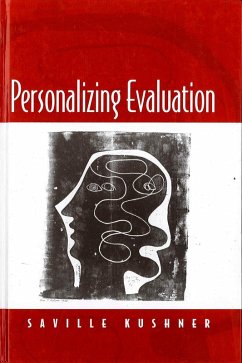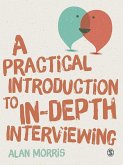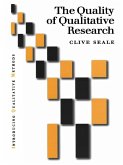`A brilliant piece of work, adroitly fitted to the present state of affairs in program evaluation, devoted to a defensible and under-attended proposition - that we should understand programs through their recipients' - Robert Stake, University of Illinois, Urbana-Champaign
`This book makes an important and unique contribution to evaluation' - Michael Quinn Patton, The Union Institute, Minneapolis
Personalizing Evaluation challenges the mainstream approach to program evaluation by inverting the traditional relationship between program and person. Saville Kushner shows how evaluation should document individual and group experience and use this as a lens through which to read social programs and to measure their significance in people's lives. He uses a wealth of examples and case studies to illustrate how a deeper understanding of program evaluation can be achieved across a range of issues and applications.
The book addresses three principal concerns that are at the heart of the evaluation process: how to learn about evaluation in ways which are related to the often confusing and messy experience of doing it; how to understand the role of evaluation as a form of personal expression and, even, political action; and how to use evaluation to say something about people's lives as well as about the programs and institutions people are involved in.
`This book makes an important and unique contribution to evaluation' - Michael Quinn Patton, The Union Institute, Minneapolis
Personalizing Evaluation challenges the mainstream approach to program evaluation by inverting the traditional relationship between program and person. Saville Kushner shows how evaluation should document individual and group experience and use this as a lens through which to read social programs and to measure their significance in people's lives. He uses a wealth of examples and case studies to illustrate how a deeper understanding of program evaluation can be achieved across a range of issues and applications.
The book addresses three principal concerns that are at the heart of the evaluation process: how to learn about evaluation in ways which are related to the often confusing and messy experience of doing it; how to understand the role of evaluation as a form of personal expression and, even, political action; and how to use evaluation to say something about people's lives as well as about the programs and institutions people are involved in.
Dieser Download kann aus rechtlichen Gründen nur mit Rechnungsadresse in A, D ausgeliefert werden.









